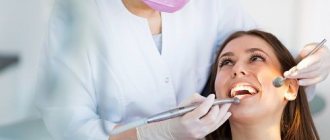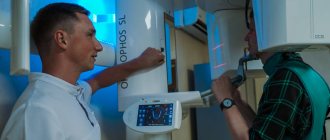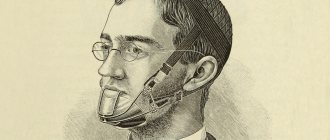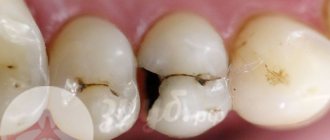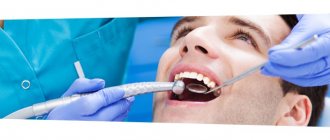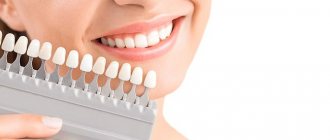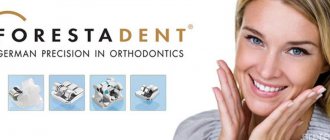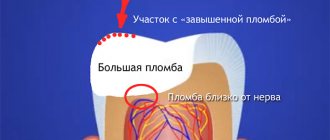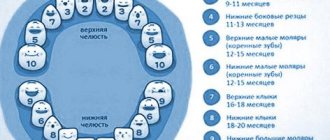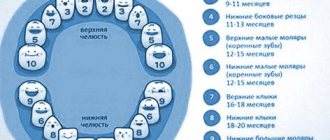Graduates are interested in the following questions: “How to apply to become a dentist?”, “What are the responsibilities?”, “What are the pros and cons of this profession?” and “What do you need for admission?”
Many graduates who are thinking about choosing a future profession want to build a career in the medical field. Some of them prefer the field of dentistry because it is one of the most promising and in demand in the modern world. Dentists can work in various medical institutions and constantly improve their professional level.
What items must be taken to the dentist?
Dentistry is considered an in-demand industry in medicine and, despite its apparent simplicity, not everything is so simple with it.
The dentist must be able to:
- Contact with people and not feel disgust or dislike at the sight of blood.
- It is easy to operate medical devices and have good vision.
This is a responsible profession that involves providing assistance to people in need. Learning is unlikely to seem easy, because medicine always requires deep knowledge. You will have to learn the anatomy of the structure and learn how to operate the basic dentist tools.
But this is after entering a higher educational institution. There are not so few people who want to become a dentist, so competition for admission to medical universities is always high. The following candidates are given priority:
- students who passed specialized subjects with the highest score;
- winners and participants of Olympiads in specialized subjects (can be held outside the competition).
The admissions committee will require deep knowledge in a number of subjects from the applicant. While within the walls of their “native school”, students should “pull up” their knowledge in the following disciplines:
| Chemistry: | It is considered the main subject that you need to know “excellently” and demonstrate your knowledge when passing the Unified State Exam. |
| Biology: | Another specialized subject, the knowledge of which must be at a high level, otherwise it is unlikely that you will be able to enter a medical university. |
| Russian language: | It is not considered a core subject, but upon admission to such an educational institution, you will have to take exams in this discipline. |
| Mathematics: | Another non-core subject that is unlikely to be useful to a dentist in everyday work, but in order to receive a certificate, you will have to pass an exam in mathematics. |
For any applicant planning to connect his life with medicine, it is necessary to have a deep knowledge of chemistry and biology. For everyone, including dentists, these subjects are considered core subjects, that is, they are necessary for obtaining, mastering a profession and entering a university.
If initially the student does not have a high understanding of these disciplines, then even when entering the desired profession, serious problems with academic performance may arise during the learning process. Is there any point in wasting time and effort?
List of universities that teach dentists.
There are about 50 higher medical educational institutions (state and non-state) in Russia, where they teach in the field of Dentistry.
Important! Before applying to a non-state university, you need to make sure it has a license and accreditation, and also study its reputation in the labor market.
Listed below are the main and most significant metropolitan and regional universities, whose graduates are especially valued in the labor market. You can enroll in places financed from the budget or study on a commercial basis.
Moscow:
- First Moscow State Medical University named after I.M. Sechenov
- RNRMU named after N.I. Pirogov
- Peoples' Friendship University of Russia
- MGMSU named after A.I. Evdokimova
Saint Petersburg:
- First St. Petersburg State Medical University named after academician I.P. Pavlova
- Northwestern State Medical University named after I.I. Mechnikov
- St. Petersburg State Pediatric Medical University
Regions:
There are dozens of public medical universities in the regions, which makes it accessible to become a dentist even in the most remote areas of the country.
The highest positions in the rankings are occupied by:
- Northern State Medical University (Arkhangelsk)
- Kazan State Medical University
- Siberian State Medical University (Tomsk)
- Orenburg State Medical Academy
- Samara State Medical University
- Irkutsk State Medical University
- SSMU named after V.I. Razumovsky (Saratov)
- Nizhny Novgorod State Medical Academy of the Ministry of Health and Social Development of the Russian Federation
- Kemerovo State Medical Academy
- Tyumen State Medical University
- South Ural State Medical University (Chelyabinsk)
Exam subjects for 9th grade graduates
The problem is that a 9th grade graduate cannot enter a higher education institution. This requires a high school diploma. That is, you need to complete 11 classes. But, there is another path suitable for 9th grade graduates. What does it consist of:
- If you successfully pass exams in specialized disciplines, you can enter a technical school or college.
- There is no specialty “dentist”; to obtain it you need to graduate from a university, but you can enroll in “nursing”.
- This will help you gain certain knowledge and prepare for admission. To a university, and then continue studying there in the chosen profession.
MIIT Medical College
The college is a structural subdivision of the Moscow State Transport University, and trains paramedical personnel for medical institutions of the Russian Railways system. It is also a clinical base for students’ practical training. Graduates of the specialty “Orthopedic Dentistry” are guaranteed 100% employment in hospitals and clinics of the Moscow railway transport. You can only get a dental technician profession here for a fee; the cost of training is 90 thousand rubles per year.
Subjects for 11th grade graduates
A certificate of complete secondary education is obtained after successful completion of schooling. This gives the right to choose a university, submit documents to it and enroll in the chosen specialty.
What exams must be taken by eleventh-graders, dentists, for admission to a higher educational institution:
| Chemistry: | Having deep knowledge in this discipline, you will be able to enter a prestigious educational institution. |
| Biology: | An excellent knowledge of human anatomy and genetics will be required. |
| Russian language: | When entering medical faculties, knowledge in this discipline is also necessary, so it is better to “pull up” your knowledge of the Russian language in advance in order to pass the exams successfully. |
Naturally, when applying to become a dentist, you will have to pay special attention to chemistry and biology. Russian and mathematics are considered general disciplines and are not directly related to the profession. But they will affect the overall score, so it is better to successfully pass all exams so that the passing score is higher, as are the chances of admission.
Many universities, especially prestigious ones with a high passing grade, are tightening their selection. They conduct testing that helps teachers evaluate applicants' knowledge. In this case, upon admission, the commission evaluates not only the Unified State Examination results, but also the test results.
Testing is considered a higher priority than the Unified State Examination score; this gives young people who did not pass the exams very well a chance to enter their chosen specialty and still become a dentist.
If preparation for additional testing is not part of the applicant’s plans, then he should choose an educational institution that does not conduct such tests. And those wishing to enroll are “weeded out” in a different way, based on the results of exams in specialized disciplines.
In this case, it will be enough to pass the Unified State Exam successfully to get a passing grade and be enrolled in the chosen university.
Russian National Research Medical University named after N. I. Pirogov
In 2013, 25 applicants were admitted to the Faculty of Dentistry with a passing score of 261 in three exams. Practical training for future dentists begins in the junior years. In the second year, students work in specially equipped phantom classrooms, where the conditions of a real dental appointment are simulated. Here, each student has a separate workplace - a phantom table, patient head simulators, a set of equipment and materials. In senior years, students receive patients in medical institutions under the guidance of teachers from specialized departments. Senior students actively attend master classes organized during international dental exhibitions, studying the experience of the international dental community.
Profession dentist: pros, cons, who is suitable
Let's talk about the advantages of the profession, because being a dentist is not so easy. Among the advantages:
- Prestige and high pay, even when working not in a private clinic, but in a municipal hospital or clinic.
- The opportunity to help people who experience pain and discomfort, make their lives easier with the help of your knowledge and skills.
- Demand is another factor that plays an important role when choosing a profession.
- Doctors are always in short supply, and professionals in their field can easily find work, even in times of crisis.
- Doctors often undergo training and improve their skills in other cities or even countries, learning from the experience of colleagues and applying it in practice.
Working as a dentist may seem routine, but knowing his job, the doctor will easily cope with it and at the same time will enjoy treating people. Helps them improve their health and cope with pain.
Activities, specializations
Dentist is a general name for doctors who are somehow connected with this field of activity. Ordinary patients are seen by a dentist-therapist; more serious problems are solved by specialized specialists. Specialties in dentistry:
- The therapist sees patients with carious cavities, treats the canals of dental tissue, restores dental defects using filling materials.
- The periodontist provides treatment for any inflammatory process in the oral cavity.
- The surgeon acts on dental tissues that cannot be treated, removing them. Performs surgical interventions if the installation of artificial teeth is required, or in case of diseases of the oral cavity that require surgical intervention.
- The orthopedist helps the patient choose the right prosthetic areas for the oral cavity.
- An orthodontist treats dental malocclusion.
- A pediatric dentist treats only minor patients, having a broader knowledge of the child's jaw.
- Hygienist - deals with the prevention and treatment of oral diseases, as well as protecting the overall health of patients.
- A general dentist deals with various activities that are performed by more specialized dentists. Such a doctor can treat a patient without resorting to anyone's help.
When thinking about these professions, young people consider how much a dentist earns. The salary of these specialists in the center of Russia is 37,000-200,000 thousand rubles, and everywhere else 25,000-120,000 thousand rubles.
Some people want to know what is the difference between a dentist and a dentist. Today, at least in Russia, there is no difference; there was in past centuries.
Who is it?
This is a doctor who deals with the correction of congenital or acquired pathologies of the jaws. He places braces, makes impressions for dentures, and then installs them. His competence includes the treatment of the following anomalies:
- curvature of the entire geometry of the dentition or individual teeth;
- unaesthetic bite;
- disproportionate development of the upper and lower jaws;
- unerupted teeth;
- asymmetrical face shape;
- tooth gap;
- speech, chewing or breathing disorders resulting from jaw pathology;
- restoration of lost teeth;
- displacement of the dentition.
The specialist’s responsibilities also include preventing the occurrence of such anomalies and studying the reasons that cause them. The orthodontist works to improve the dentition in every possible way.
The profession requires combining the skills of a dental technician with the knowledge of a dentist. But he does not treat carious cavities or fill them. To correct teeth, an orthodontist mainly uses hardware and surgical methods.
Important! Dental anomalies can be corrected at any age. But only those who see a doctor on time with their problem can count on the most positive results. This applies to both children and adults.
In the video about who an orthodontist is, what he does and why it is needed:
Advantages and disadvantages
All applicants want to know about the possible pros and cons that they may encounter while working. The advantages of this specialty include:
- good salary with a chance for additional opportunities. payments and bonuses;
- the opportunity to work with unique clinical cases and understand the structure of patients’ jaws;
- career prospects and a chance to take the post of chief physician;
- fixed shift work schedule, taking into account the time necessary for employees to recuperate;
- long vacation and additional days off for overtime (45 days or more);
- new interesting acquaintances in the medical field;
- a chance to work not only as an orthodontist, but also as a general practitioner;
- a chance to help people every day.
Professionals deal with various maxillodental defects and psychological problems of patients every day. Their main task is to provide the necessary psychological support. They help their patients not only get rid of discomfort and pain, but also increase their self-esteem. For this, doctors receive in return gratitude and recognition of the importance of their work.
Unfortunately, there are not only advantages, but also disadvantages. These include:
- a high level of administrative and criminal liability for their actions;
- high psychological and physical stress;
- a long and expensive period of study (there are usually fewer budget places at the nursing faculty than at others).
There are disadvantages in any industry, but applicants do not need to focus on them when choosing a specialty. Orthodontics offers many career prospects and avenues for professional fulfillment. Those who choose this specialization can be in demand as workers if they study hard.
Admission conditions
The main objective of the course is to train a specialist who can take responsibility for the treatment of the patient. This involves performing specific practical tasks of varying levels of complexity, so you cannot do without theory and practice. What subjects must be passed successfully to be admitted to this major:
- chemistry (major exam);
- Russian language;
- biology/physics.
Is it possible to take retraining courses?
By order of the Ministry of Health No. 707n, only doctors with internship or residency training in the specialty “Dentistry” or “General Dentistry” can undergo retraining in dentistry.
In accordance with Article 69, Federal Law No. 323, dental therapists must undergo retraining if they have not worked in their specialty for more than 5 years.
During retraining courses they study:
- rules of dental treatment;
- diagnosis of diseases;
- pathologies of dental development;
- mechanics and biomechanics of the maxillofacial apparatus.
Retraining courses can be conducted both face-to-face and remotely.
Advantages of distance learning:
- no need to take time off to study the course;
- Both a standard work plan and a personal one are available;
- the acquired skills can be applied before completing the course;
- Access to educational materials is available at any time during the year from the start of the course.
A typical vocational retraining program typically lasts more than 500 hours. With a daily load of 6-8 hours, you can complete the course in about 3 months.
To enroll, you do not need to wait for a group to be recruited. You will also need the following documents for enrollment:
- passport;
- diploma of education;
- certificate (residency or internship).
You can find out how much training to become a dentist costs from the manager who fills out the student’s application.
Upon completion of the course, a standard diploma is issued. An electronic copy is sent to the listener immediately. You can receive your completed diploma by mail or yourself. The document can be obtained even while in another country. For the document to have legal force, the DPO organization must have an education license.
Professional retraining / Health and medical sciences / Medicine / Dentistry
Orthopedic dentistry (for VMP)
Academy of Modern Technologies
Distance, All professional retraining
Tyumen
Training period
More details
Professional retraining / Health and medical sciences / Medicine / Dentistry
Surgical dentistry
Academy of Modern Technologies
Distance, All professional retraining
Tyumen
Training period
More details
Further Education / Health and Medical Sciences / Medicine / Dentistry
Dentistry therapeutic
Academy of Modern Technologies
Remote, All advanced training
Tyumen
Training period
More details
Important personal qualities
The most important thing here is the psychological factor. Dental correction is a long process. It takes from 6 months to 2-3 years. And most often you have to deal with children. Therefore, you need to be able to establish trusting contact with them. You can’t do this without the ability to empathize and communicate.
Stress resistance and the ability to smooth out conflict situations are also valued. And in order for the treatment results to always be positive, you need to take your work responsibly. Hard work also requires goodwill, balance and tact.
And no less significant will be the desire for self-development. A specialist must regularly improve his competence and skill level , and understand new treatment methods.
How to pass the examination for 200 points
How to pass the external examination in Ukrainian language and literature, biology and other subjects for 200 points? Firstly, preparation should begin at least 2 years before the exam in order to practice more. If it didn’t work out in advance, then you need to focus on the sections with the most questions. Usually the most tasks are on the syntax and morphology of the language.
You also need to practice writing an essay, because it gives the most points. Although you should not focus on it - in medical and polytechnic universities it is more important to write with the least number of errors.
It is more effective to prepare together with friends: explain topics to each other, organize competitions to test your knowledge of the subject. Special associative sentences also help memorization. For example, which consonants are voiceless? The sentence will help: “TsAP KhoChe FISTASHKI” - the corresponding letters are highlighted here.
It is worth taking tests from previous years - they can be found on the Internet on educational sites.
Psychological advice: on the day before cancer you need to relax. Relax, spend time with family or friends. Then look through all the topics at a glance. This way you will remember the questions with which you started preparing. It is also important to go to bed on time to get a good night’s sleep - this will give you more strength during the exam.

